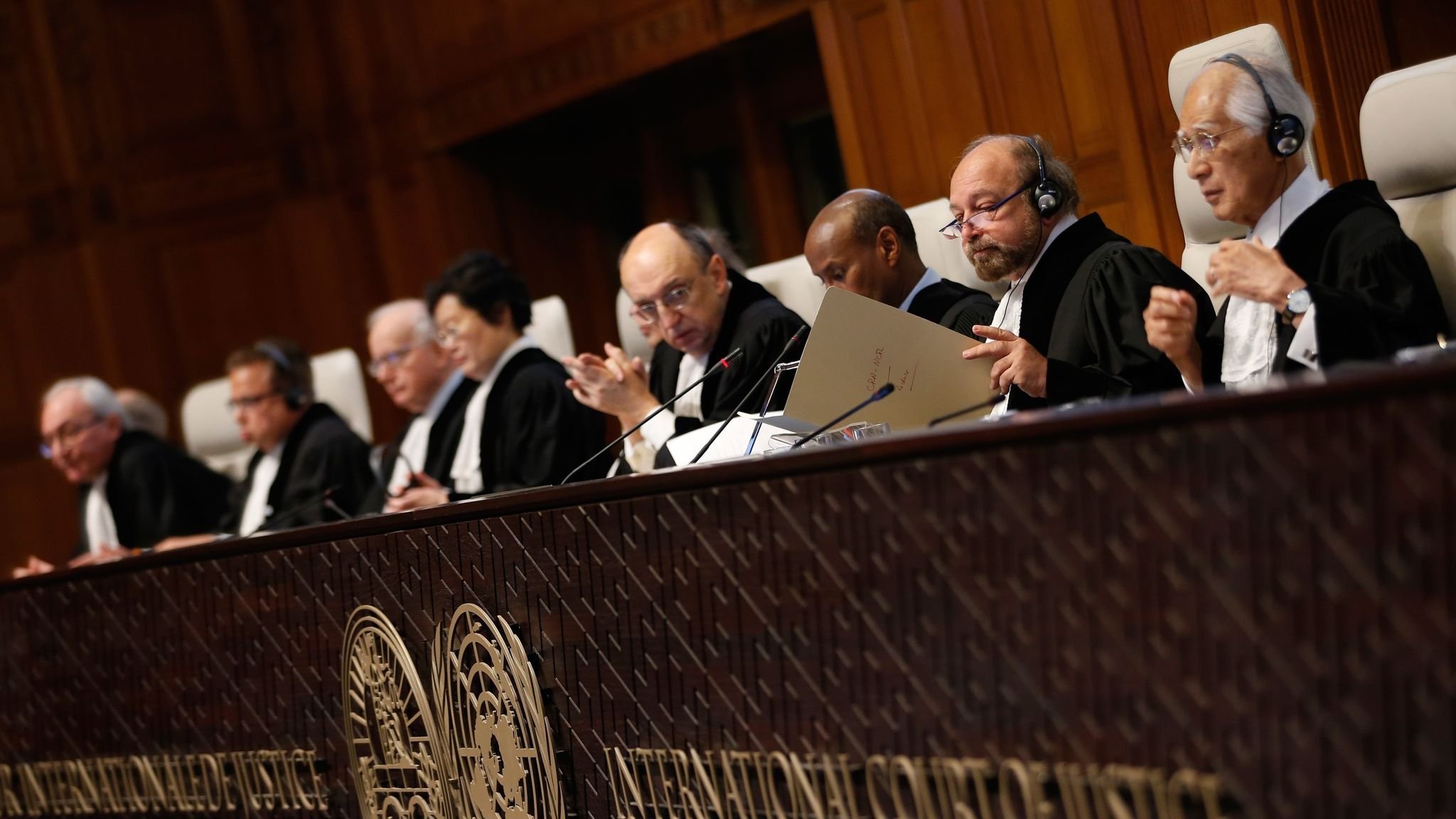
The United Nations’ highest court opened historic hearings Monday into the legality of Israel’s 57-year occupation of lands sought for a Palestinian state, plunging the 15 international judges back into the heart of the decades-long Israeli-Palestinian conflict.
Six days of hearings are scheduled at the International Court of Justice, during which an unprecedented number of countries will participate, as Israel continues its devastating assault on Gaza.
Though the case occurs against the backdrop of the Israel-Hamas war, it focuses instead on Israel’s open-ended occupation of the West Bank, Gaza and east Jerusalem.
Palestinian representatives, who speak first on Monday, will argue that the Israeli occupation is illegal because it has violated three key tenets of international law, the Palestinian legal team told reporters Wednesday.
They say that Israel has violated the prohibition on territorial conquest by annexing large swaths of occupied land, has violated the Palestinians’ right to self-determination, and has imposed a system of racial discrimination and apartheid.
“We want to hear new words from the court,” said Omar Awadallah, the head of the U.N. organizations department in the Palestinian Foreign Ministry.
“They’ve had to consider the word genocide in the South Africa case,” he said, referring to a separate case before the court. “Now we want them to consider apartheid.”
Awadallah said an advisory opinion from the court “will give us many tools, using peaceful international law methods and tools, to confront the illegalities of the occupation.”
The court will likely take months to rule.
But experts say the decision, though not legally binding, could profoundly impact international jurisprudence, international aid to Israel and public opinion.
Israel is not scheduled to speak during the hearings, but could submit a written statement. Shany said Israel will likely justify the ongoing occupation on security grounds, especially in the absence of a peace deal.
It is likely to point to the Oct. 7 attack in which Hamas-led militants from Gaza killed 1,200 people across southern Israel and dragged 250 hostages back to the territory.
But Palestinians and leading rights groups say the occupation goes far beyond defensive measures.
They say it has morphed into an apartheid system, bolstered by settlement building on occupied lands, which gives Palestinians second-class status and is designed to maintain Jewish hegemony from the Jordan River to the Mediterranean Sea.
Israel rejects any accusation of apartheid.
After the Palestinians present their arguments, 51 countries and three organizations — the League of Arab States, the Organization of Islamic Cooperation, and the African Union will address the panel of judges in the wood-panelled Great Hall of Justice.